Anyone can make music, just look at the recorder recitals from early school days. But it takes an extra flair to go into music production, as well as some extra tech in your toolkit. Digital Audio Workstations (DAWs) can work on many great laptops, but the software is very taxing on your RAM and CPU. To avoid crashing and losing progress on your project, a good workhorse laptop is needed when creativity strikes away from your desk.
The things to look out for when it comes to a music production laptop are good storage options to fit all the projects you're working on, fast RAM (and a lot of it) and a good processor. Luckily, GPU performance isn't a factor when it comes to music production, so keep that in mind when shopping around. Sound editing can be very demanding on a computer, so finding a good option that fits your needs without breaking the bank is a fine line. We collect the best options for the average budding producer, no matter your music or DAW.
The best laptops for music production in 2025 at a glance
• Best overall: Apple MacBook Pro M3 Pro – View on Amazon
• Best budget: ASUS Vivobook 15 X1504ZA – View on Amazon
• Best for work and play: MSI Stealth 18 – View on Amazon
And while computer specs may as well be written in Klingon for most people, we've made them easy to understand so you know which one will be right for you. We've made a list of some of our favourite laptops and examined their qualities (such as affordability) so you can choose the best device possible.
Join us in looking at some of the best laptops for music production that will ensure your next mixtape is awesome.
Best laptops for music production in 2025
All prices are correct at the time of writing. Prices, stock and deals are subject to change without notice.
Best overall
 Apple
AppleApple Macbooks have been the go-to for music producers for years now, and for good reason. The latest addition to the Macbook line-up is an absolute workhorse, utilising the power of Apple's M3 chip. This makes an already great processor even better, allowing for more responsive editing, great visuals and brilliant integration with existing Apple products, such as Logic Pro. One of the most popular DAWs on the market Apple keep this software to themselves, only available on Apple machines. They have introduced support for Logic Pro on iPads, but it feels most at home on an Apple computer.
However, with most Apple products, you can find a cheaper Windows alternative with similar specs. But the M3 chip and access to Logic Pro are worth the extra you'd be paying. Not to mention the fantastic build quality. This computer will be with you from the start of your career to your first big hit song and beyond.
Pros
- Fantastic M-series chip from Apple
- Servicing is available in most cities thanks to the Genius Bar
- Access to Logic Pro software unavailable on Windows computers
Cons
- Cheaper options for similar specs are available on Window laptops
| CPU | Apple M3 Pro (11-core) |
| GPU | Integrated graphics with M3 Pro (14-core) |
| RAM | 18GB LPDDR5 |
| Storage | 512SSD |
| Display | 14-inch 4K Liquid XDR Retina |
| Battery Life | 18 hours |
| Dimensions | H15.5 x W313 x D221mm |
| Weight | 1.61kg |
Best budget
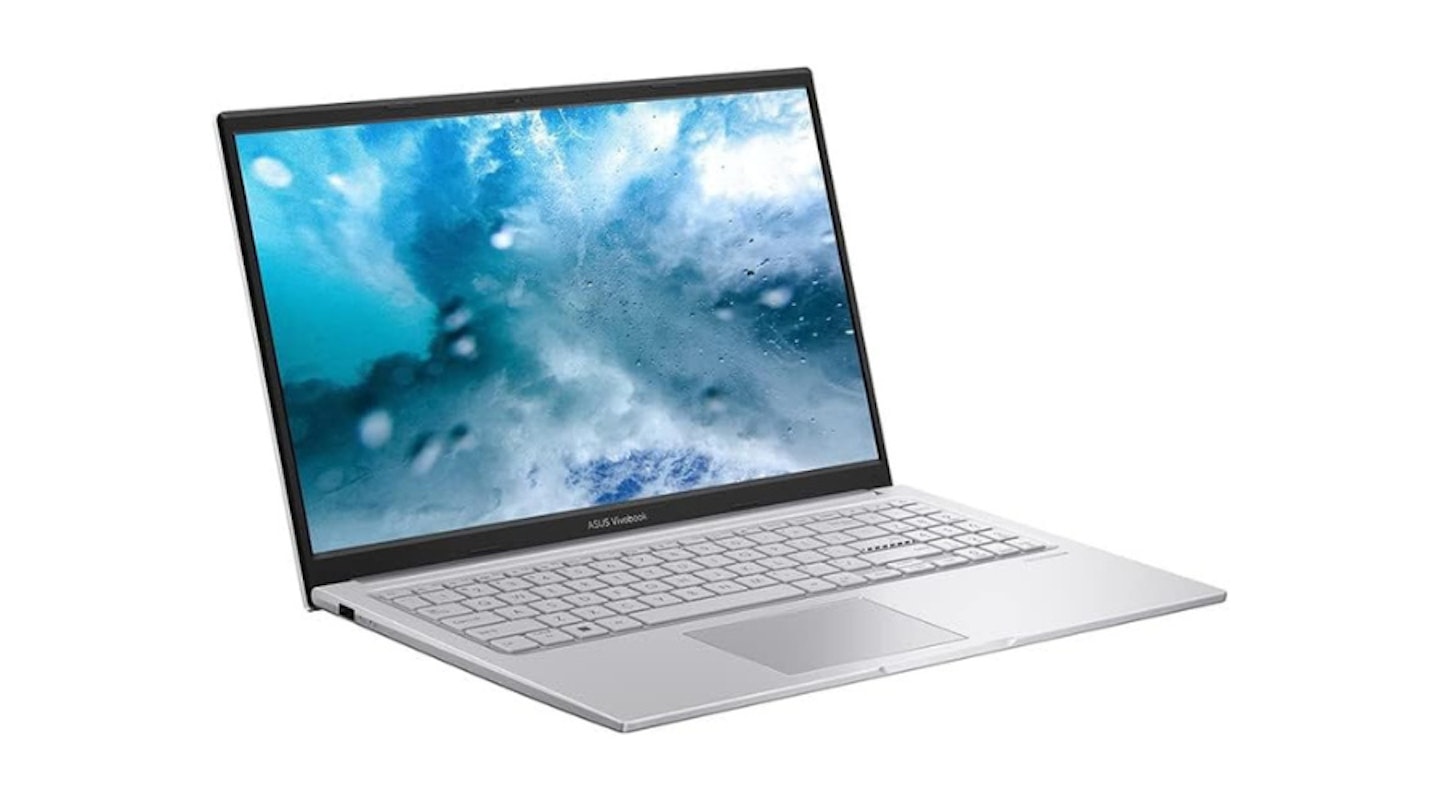 Amazon
AmazonIf you're looking for a laptop for music production on a budget, this Asus model is a good bet. While the display isn't anything to shout about, it's what's under the hood that's worthy of a mention. You'll have access to 16GB of DDR4 memory, 512GB of super-fast SSD storage and an Intel Iris Xe Graphics processor to boot. This machine can handle anything you throw at it, rendering, bouncing, exporting, mixing, producing, whatever you end up using it for, it is more than equipped.
Wherever you travel it'll be at home thanks to its US Military Standard certification. Able to withstand plenty, it should be safe even if you check your laptop bag before a flight.
Getting these great features for such a low price does mean a few downsides. While integrated GPUs aren't known to be amazing for graphics, you'll likely be too busy making your music to play games on it anyway. The battery leaves a bit to be desired, and you'll find yourself needing to bring the charger with you wherever you decide to set DJ next. With these features and caveats in mind, we're sure the laptop will serve you well.
Pros
- Key technical features normally found on more expensive models
- A sturdy machine thanks to its US MIL-STD 810H military-grade certification
- Above-average speaker quality
Cons
- Better processing units out there
| CPU | Intel®Core™ i5-1235U Processor 1.3 GHz |
| GPU | Intel Iris X |
| RAM | 16GB DDR4 RAM |
| Storage | 512GB SSD |
| Display | 15.6-inch FHD |
| Battery life | Up to 8 hours |
| Dimensions | 35.97 x 23.25 x 1.79 cm |
| Weight | 1.70 kg |
Best for work and play
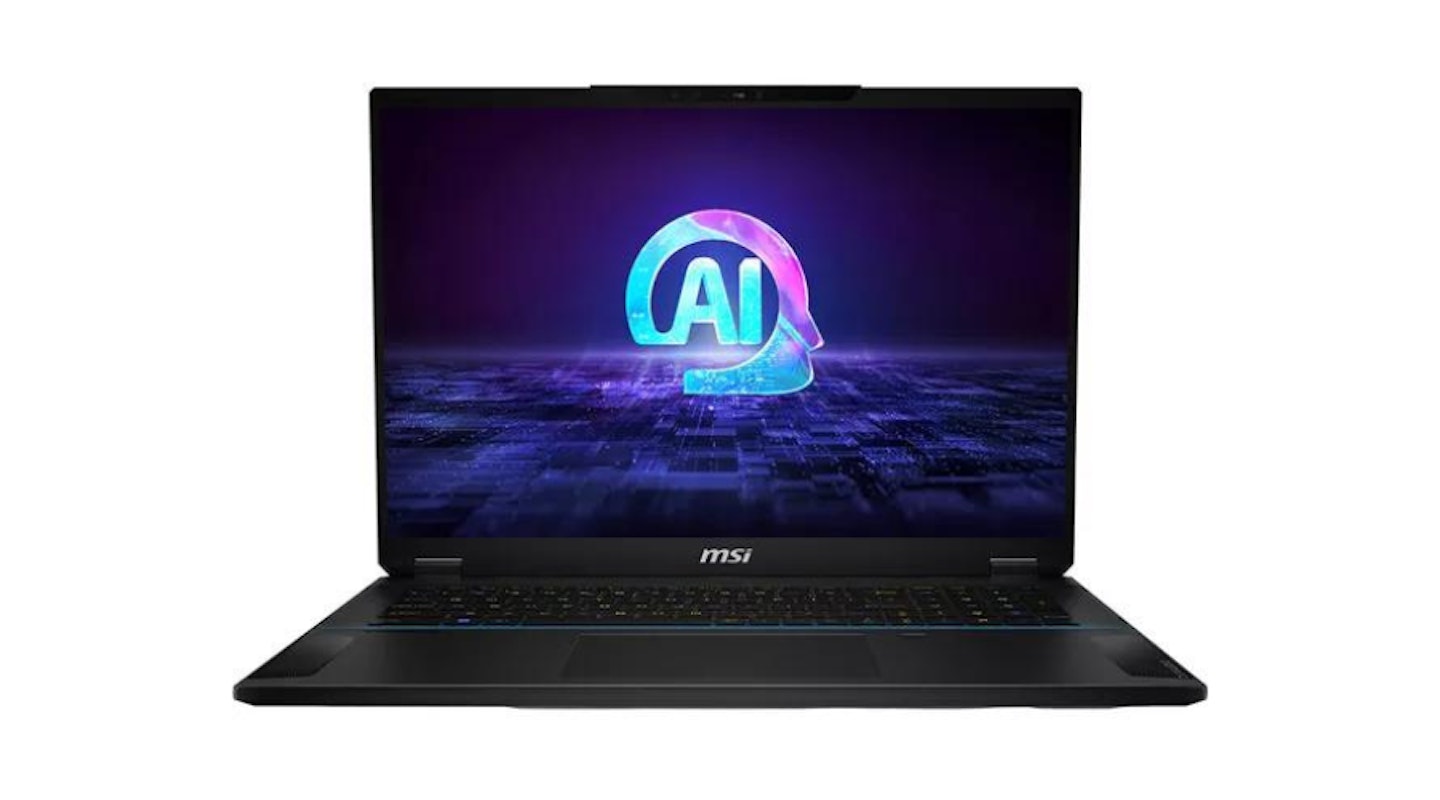 Currys
CurrysThough this laptop has gamers in mind, it's stuffed to the gills with great technical specs that will also serve creators. High-powered, high-performance components are also the things that will help you in producing your music.
This workstation will be able to meet whatever rendering or live-mixing needs you may have. The best CPU of the bunch, with 32GB of DDR5 RAM, just in case you need even more bang for your buck.
It comes equipped with a 4080 NVIDIA GPU, so once you clock out from your music career you can log on to whatever modern game you may want to play. Aside from only five hours battery life, this laptop is an absolute overachiever whether you're on or off the clock.
Pros
- Best technical specs on the list, beating many desktop options in terms of power
- Sleek design, not overly "gamer"
- Per-key RGB lighting on the keyboard
Cons
- Only 5 hours battery life
| CPU | Intel Core Ultra 9 185H Processor |
| GPU | NVIDIA GeForce RTX 4080 (12GB) |
| RAM | 32 GB DDR5 |
| Storage | 2 TB SSD |
| Display | 4K Ultra HD screen / 120 Hz |
| Battery life | 5 hours |
| Dimensions | 23.99 x 399.99 x 289.67 mm |
| Weight | 1.99 kg |
Best for portability
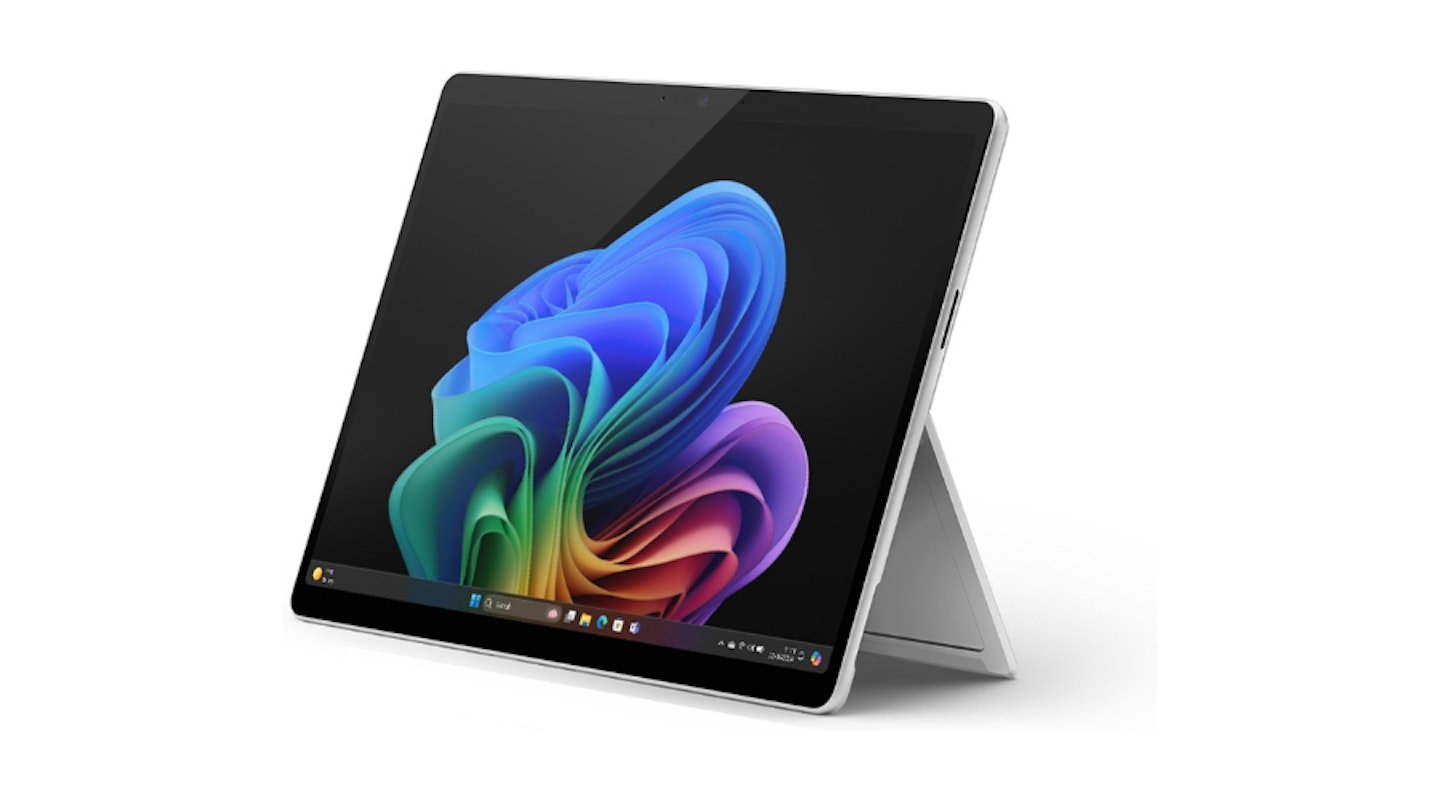 Microsoft
MicrosoftAn interesting option from Microsoft, the 11th generation Surface Pro offers a touchscreen and a keyboard, making it a versatile option for someone wanting to bridge the gap between tablet and laptop.
Mixing on the Surface Pro has been well-documented by producers and artists alike. The Microsoft Surface pen works well for finer detail editing (such as writing automation data) giving your fingers a rest should you find the touchscreen not to your taste.
It's a shame the keyboard is an added extra, as well as storage being limited at this price point, but the value you're already getting from this piece of kit makes the investment worthwhile.
Pros
- The touch screen is handy for quick music editing
- Great portability
- Snapdragon processor ensure lightning speeds
Cons
- Keyboard is sold separately
| CPU | Snapdragon X Plus (10 Core) |
| GPU | Qualcomm Adreno |
| RAM | 16GB |
| Storage | 256GB SSD |
| Display | 13-inch PixelSense Flow display |
| Battery life | 14 hours |
| Dimensions | 28.7 x 20.8 x 0.93 cm |
| Weight | 959 g |
Best mid-range
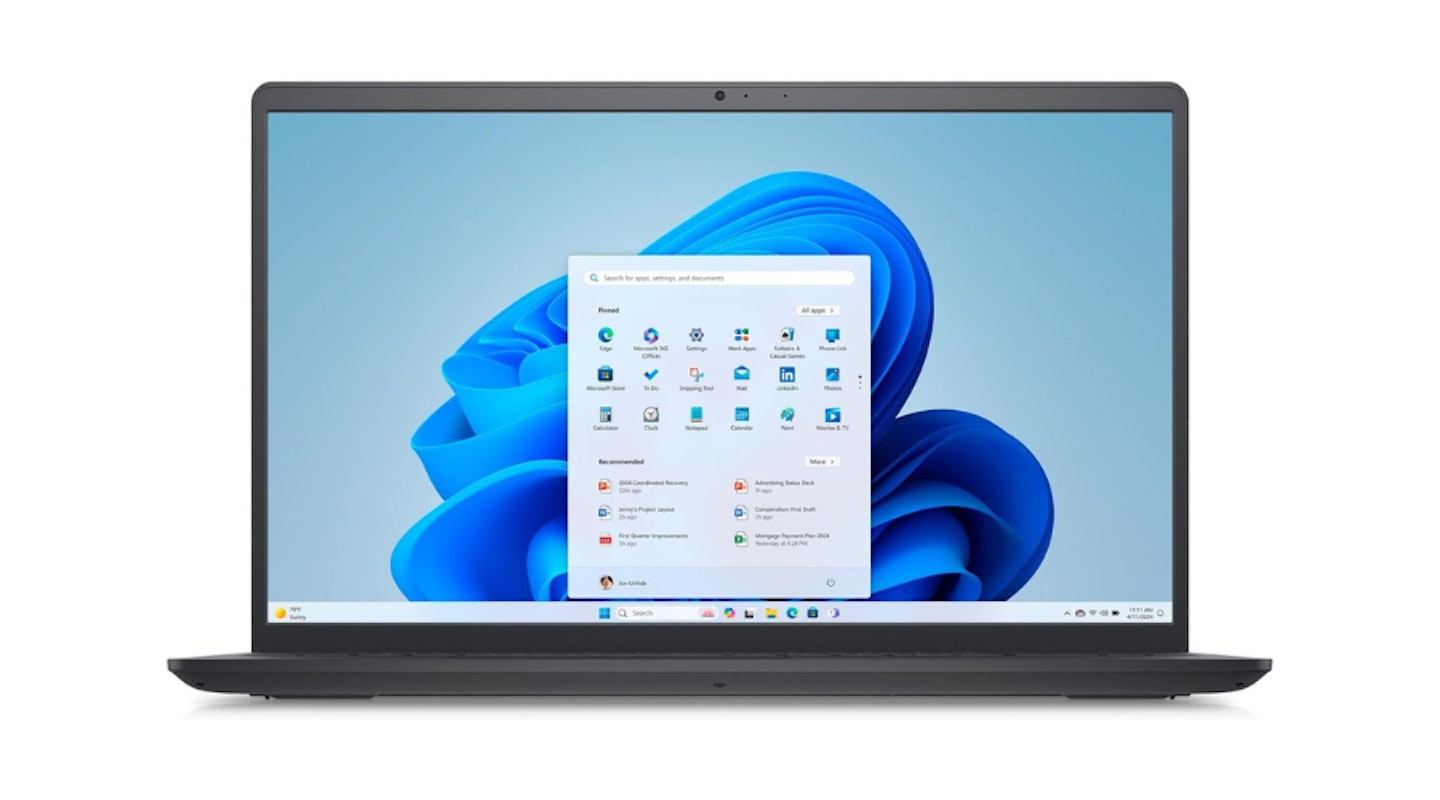 Amazon
AmazonThis machine is at a mid-tier price but gives you a lot of the more upmarket features. It comes equipped with the standard tech specs you'd expect to be able to work as a music producer, with added extras such as a fingerprint reader on the keyboard, blue light control and even Dolby Atmos sound from the incorporated speakers. This last feature really makes it stand out against other laptops in its class, the ability to clearly listen to your work is paramount.
It comes with an ideal 512TB storage capacity, with the option for you to expand on it should you want to take your projects on the go with a portable drive. There isn't much to fault with this computer, though the screen is only HD which at this price point is a little disappointing. However, it's a decision which ensures the rest of the computer is filled with important features.
Pros
- Solid storage capacity
- Great as a daily laptop as well as focused music production
- High-level 10 band processor
Cons
- Screen quality could be higher given the price
| CPU | 12th Gen Intel® Core™ i5-1235U (10 core) |
| GPU | Intel Iris Xe Graphics |
| RAM | 16GB DDR4 |
| Storage | 512TB SSD |
| Display | 15.6", FHD |
| Battery life | 8 hours |
| Dimensions | 23.56 x 35.85 x 1.7 cm |
| Weight | 1.83 kg |
Best display
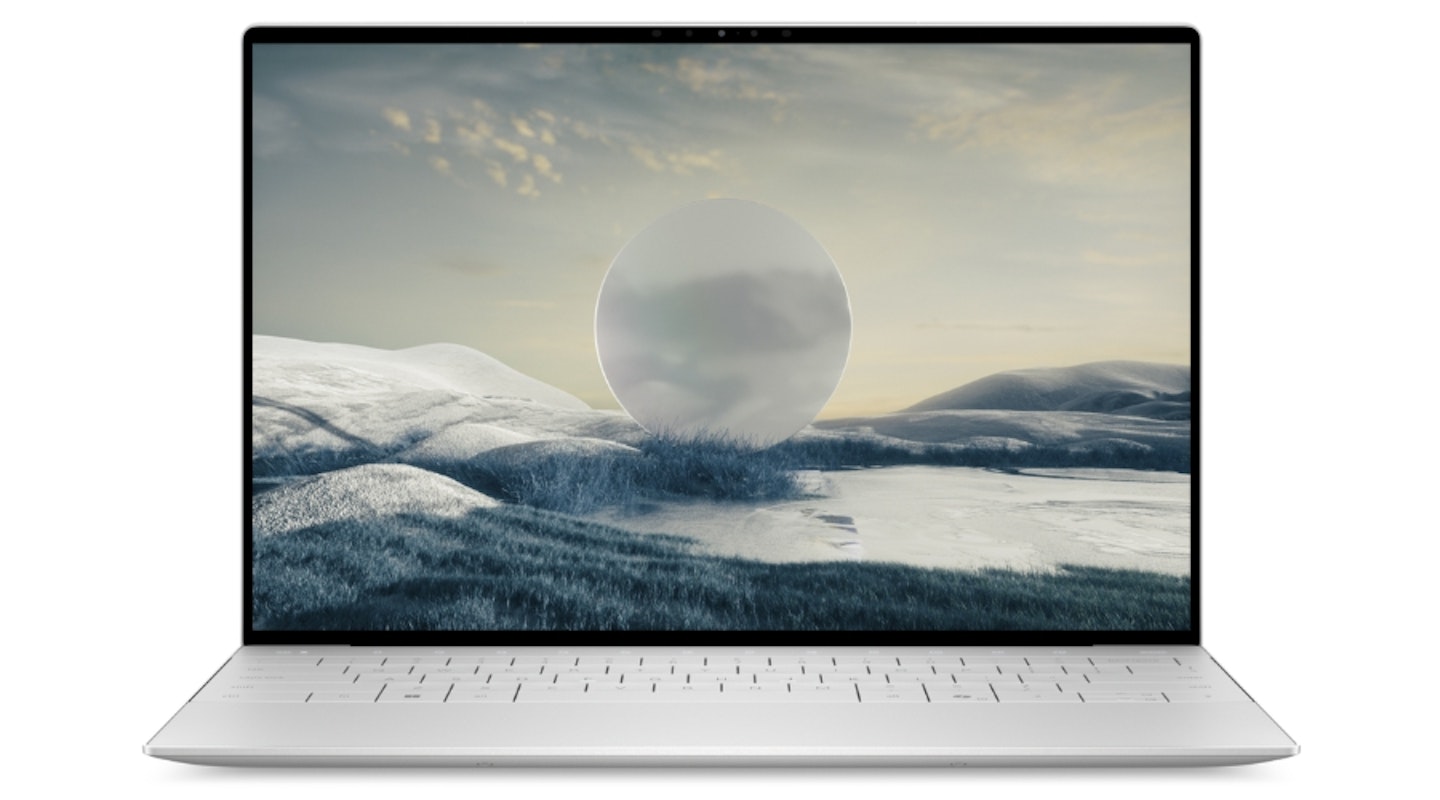 Dell
DellThe XPS line from Dell has a well-earned reputation as a heavy hitter. With several configuration options offered, we have gone with the model that offers you the best bang for your buck for music production.
One of the few laptops on the market with 32GB of DDR5 RAM, this is one speedy machine, more than capable of having your buffer size as small as possible on ProTools. Whatever you're creating, you'll be able to turn your thoughts into sounds as fast as you can think of them. In addition to that great spec, the whopping 16-core CPU can handle any rendering or exporting you may need to do, since "final" doesn't always mean finished in the realm of music making. The 1TB SSD is more than adequate for music production needs, and since the specs in general are so good on this laptop there's even room for a few games.
The 3-cell battery is good, but for what's meant to be a portable music-making machine we would have hoped for a longer lasting battery at this price. However, Dell does offer replacements that you're able to install at home should the battery ever struggle to hold a charge.
This is one of the punchier options on this list, giving a lot without making the compromises you'd normally see to reach this price point. You'd struggle to build a PC with similar specs for less money, and with the added bonus of being able to take it with you on a long train ride, what's not to love?
Pros
- Lots of configuring options
- One of the few laptops with 32GB RAM
- Glass touchpad for a smooth operating experience
Cons
- Battery could be better
| CPU | Intel Core Ultra 7 (16-core) |
| GPU | Intel Arc integrated graphics |
| RAM | 32GB LPDDR5 |
| Storage | 1TB SSD |
| Display | 13.4-inch FHD |
| Battery life | 5.5 hours |
| Dimensions | H15.3 x W295 x D199 mm |
| Weight | 1.19 kg |
Best versatile
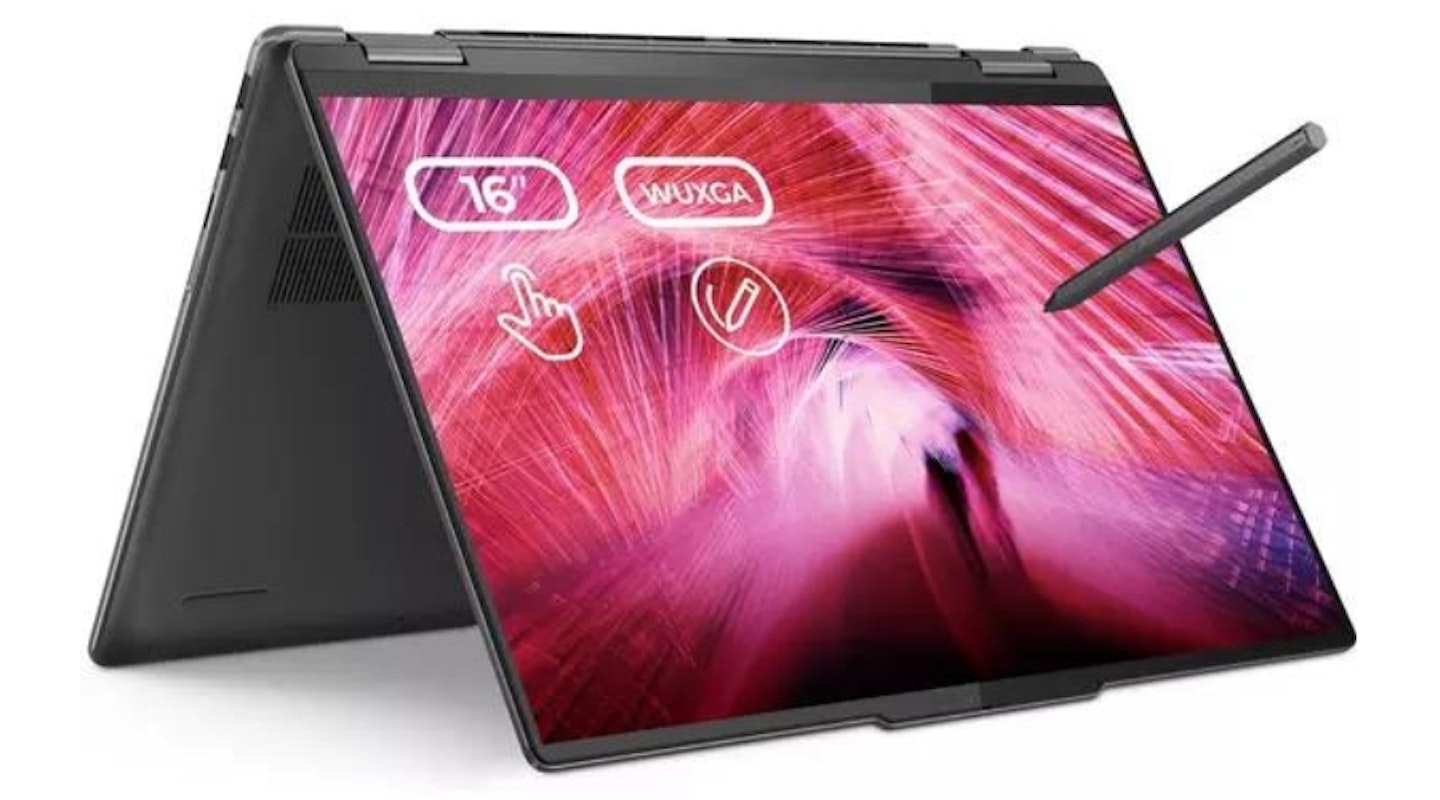 Currys
CurrysThough words like "yoga" and "music production" may not sound like they fit together, they are a match made in heaven in this nifty offering from Lenovo. It features a massive touchscreen display, a good amount of RAM, a bumper SSD and a whopping 10-core CPU. Plus, it functions as a laptop or a tablet.
Some users have reported hinge issues, perhaps inevitable with a foldable design which allows you to use it in so many ways. Overall though, this bridges the gap between laptop and tablet better than the Windows Surface and is a great choice for an avant-garde creator.
Pros
- Dolby Atmos speakers with built-in woofers for the bass boosters out there
- Flexible working thanks to the touchscreen
- Great specs for this pricepoint
Cons
- Flexible hinge may be susceptible to wear quicker
| CPU | Intel Core i7-1355U (10-core) |
| GPU | Intel Iris Xe integrated graphics |
| RAM | 16 GB LPDDR5 |
| Storage | 512GB SSD |
| Display | 16-inch FHD touchscreen |
| Battery life | Up to 11 hours |
| Dimensions | H19.2 x W361.51 x D249.65 mm |
| Weight | 1.98 kg |
Best tablet
 Apple
AppleWhile it's not technically a laptop, the iPad is still a great option for those wanting an ultra-portable music-making machine.
Thin and lightweight, it supports versions of ProTools (Sketch) and Ableton (Note), both free applications but with some limitations compared to the full software on a desktop. The tablet comes preloaded with GarageBand, the "trial version" of Logic Pro. This free app offers most of the basic features to get you hooked on music production. Plus, a major update to Logic Pro for the iPad has been announced, so the iPad is even more worthy of consideration if music-making is on your mind.
To get these great options into such a small package there are some concessions, such as the 8GB RAM and less-than-stellar battery life. However, 8GB will be more than enough to handle the sessions you'll be creating on the iPad applications. Not to mention the M2 chip will help you along your way. One of the most powerful chipsets available and in such a small package is good news for those who prioritise performance over speed.
Pros
- Fantastic display
- Great integration with Logic Pro and ProTools Sketch
- Fantastic for alternative applications
Cons
- Additional RAM is not configurable
| CPU | Apple M2 (8 core) |
| GPU | 10 core integrated GPU |
| RAM | 8GB |
| Storage | 256GB |
| Display | 12.9-inch Liquid Retina XDR |
| Battery life | 10 hours |
| Dimensions | H280.6 x W214.9 x D6.4mm |
| Weight | 466 g |
Buyer's guide to music production laptops
When it comes to music production, you'll start to understand technical terms like EQ, gain and bit-rate, but it's worth understanding the technical terms of the computing world to know exactly what it is you're looking for in a workstation. We'll break down the key features you'll need to look for when shopping around.
CPU
The CPU (computer processing unit) acts as the brain of the computer and is responsible for most of the instruction and command executions when you use the laptop. In layman's term, if you press a key, the CPU is responsible for translating that to a letter on a screen. When it comes to music production, having a reliable CPU is essential for processing intensive DAW programs, many gaming laptops would have good CPU specs, but since a GPU is not essential to music production, you can save some money by avoiding the RGB in this case.
RAM
If the CPU is the brain, then RAM (random-access memory) is the short-term memory. RAM allows the computer to store data that allows applications to run smoothly. To achieve this, it's better to have faster RAM, DDR5 is the most up-to-date generation of RAM, with a good speed clocking in at 6000 MT/s which allows for more tracks in a project, and lighting fast work speeds. 16GB will serve you well, though 32GB will help you future-proof your workstation.
Storage
Having a good amount of storage may be overlooked for anyone not trying to download Red Dead Redemption 2, but is vital for music production. The software needed to make your beats takes up a lot of space on your hard drive, not to mention the array of songs you'll be bouncing out. Having good external storage is handy, but having at least enough to manage the DAW software and plug-ins is vital.
Speakers
Every laptop comes equipped with speakers, and having good speakers will make a difference when it comes to casually watching a film or winding down with some games. But for music production, it's best to use a good set of headphones, especially for the portable set-up you'll be after when using the laptop in crowded areas.
Build
As it's a laptop you're after, portability should also be considered. A larger screen may look nice but it'll be more difficult to carry around, not to mention that a 4K screen won't make your music sound any better. Any laptop that weighs less than 2kg is ideal for carrying around wherever you may need to.
Usage
You should also consider what else you'll use this laptop for. If you're an avid gamer in your spare time, it's a good shout to avoid anything from Apple as that isn't really what their computers are designed for. If you're a cinephile and want to swatch the latest blockbuster in your free time, consider a higher resolution screen, such as 4K or the XDR screens from Apple.
FAQs
What DAW should I buy?
A good digital audio workstation can cost anything between £80-£240 for the most basic set-up (and on a yearly subscription service), so it's worth bearing that in mind when you're laptop hunting and incorporating that cost into your budget. Products like Ableton Live, Logic Pro and ProTools may be industry standard, but there is a very steep learning curve that comes with them.
GarageBand is a good starting point and is included for free on all Apple products. While it doesn't have some of the more professional features of other DAWS, the free tutorials, and features it does come with make it our pick for a beginner. There are similar trial versions available on PC, such as ProTools Intro and Ableton Live Lite that offer the basic functions to let you try before you buy.
There are other options for cheap DAWs out there, like Luna, Waveform Free and Serato Studio that offer different experiences and workflow options. If you're in for the long haul when it comes to music production, starting at the industry level and working your way up is the best bet to take you from Soundcloud to the top 40.
Is Mac better than Windows for music production?
That depends on your choice in DAW, and the kind of workflow you're looking for. Mac definitely has some advantages on Windows thanks to the support for Logic Pro (produced by Apple in-house). As for other DAWs, there are no advantages between Mac and PC, aside from the layout of shortcuts on the keyboard.
However, Windows machines tend to give you a lot more bang for your buck when it comes to the quality of components and repairability. You'll likely find a more powerful and better-designed model from other companies, but Apple's place in the music industry can't be overstated and is often what many people go for as their first choice.
Is there anything else I need for music production?
While getting the laptop and a good set of headphones could be enough for you to get started, there are bits of kit that can help you in the long run. Getting a MIDI keyboard allows you to get down those melodic ideas in a more natural way, rather than writing each note or attempting to play the laptop keyboard as a, well, keyboard. An audio interface is also handy for inputting live instruments like a guitar or connecting an XLR microphone for vocals. These tools will allow you to expand and improve your set-up alongside the purchase of your new music-making laptop.
How we choose
When it comes to selecting the right laptop you could buy for music production, we examine the technical specifications of each laptop, determining if they're suitable for handling processor-intensive work, and then what makes them different/better than other similar laptops. Each choice on this list has a specified reason for it to be on here, as it offers something different than the one that came before it, whether in design, operating system or price point. Our pick of the bunch is the Apple MacBook Pro.
Why should you trust us?
At What's The Best, our mission is to provide accurate and reliable reviews, ensuring our readers receive honest and transparent information about the best technology products available. Anything less would undermine our commitment to being a trusted source of unbiased product information.
Our dedicated in-house writing team comprises experts with extensive experience and a genuine passion for technology. Collectively, we have spent decades testing and writing about tech, leveraging our expertise in all our articles, advice pieces and reviews.
We maintain complete editorial independence and do not accept payment for product reviews. Our writers have full control over their content, ensuring that products are selected based solely on the needs of our readers. While we may earn commissions or other compensation from links on our website, this never affects our product choices. These links enable us to continue offering valuable consumer advice, without compromising the integrity of our reviews.
Olivia Sheed is a Tech Writer and Reviewer at What’s The Best. Here she writes reviews, how-to guides and articles across all things technology.
Her interests align with “anything nerdy.” Olivia is an avid fan of TTRPGs, board games, miniature painting, and video games. Outside of that, she loves to discuss horror films, campy classics such as those from Hammer Film Productions in the 70s are her favourite for a comfy watch. An avid hiker, she visits the Lake District often, for both walking and wild swimming.
Subscribe to the What’s The Best Newsletter to keep up to date with more of the latest reviews and recommendations from the rest of the What’s The Best team.

